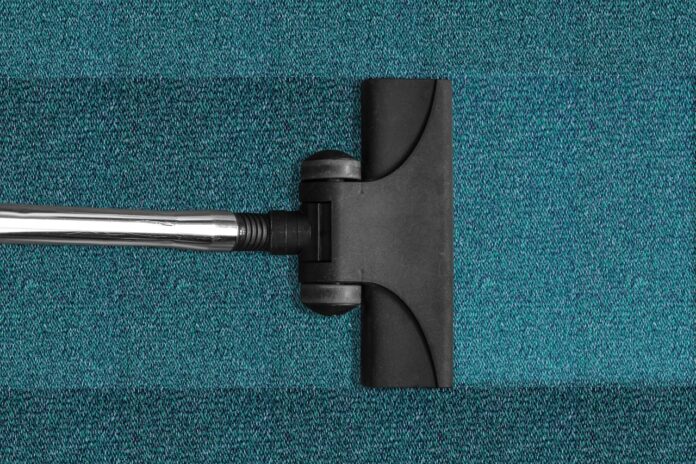Moving home can cost a lot of money. For tenants, it means finding another deposit to put down on the next home. This will almost certainly be before the deposit on the existing home is returned.
With security deposits often amounting to a month and a half’s rent, plus another month of rent in advance, tenants will want to save money wherever possible.
This might mean hiring a van or using friends for the actual move, and perhaps doing the moving-out clean by themselves too.
After all, if you are looking for ways to save money on end of tenancy cleaning, then the obvious choice is to get scrubbing yourself.
What is the purpose of cleaning the property?
The main reason in most tenants’ eyes for cleaning a property is to get the full security deposit returned
Of course, other factors come into it too. When handing the keys back you would no doubt like to do so on good terms. And it is wise to stay on friendly terms with landlords as you may need their help getting a new home.
References are needed to secure rental properties along with credit checks and deposits. You will need a reference from your landlord at some point so making sure the home is spotless will be in your favour.
Can you clean the property yourself?
Before handing back the keys to the landlord, the place needs to be spotless, or at least meet certain standards.
The answer to that particular question is, yes, of course, you could clean the property yourself. However, there is another question that should be asked; should you clean the property yourself?
Dusting skirting boards, scrubbing grease from the hobs, and cleaning windows, are no doubt all within your skill levels. But, are your cleaning standards going to be high enough?
What happens if you don’t clean the property to the necessary standards?
Saving money on end of tenancy cleaning is undeniably desirable, but receiving the full deposit back may be more preferable.
One problem with cleaning a property yourself before moving out is that it may not match the standards that the landlord has in mind.
The Tenants Voice reports that end of tenancy cleaning causes more disputes than any other factor. Around 56% of disputes are caused by differing views on what is clean and what isn’t. Of course, you may clean the property spotlessly and just be unfortunate that your landlord is exceptionally fussy.
How much time is involved in cleaning a rental property?
This is just like the question; how clean should the property be? It depends on the size of the home and the amount of effort you put into it. As for how clean the property should be; well, that is simply a matter of opinion.
However, there are ways to minimise your effort and maximise the chances of meeting your landlord’s requirements.
When you moved into the property you should have been given an inventory that you signed along with the landlord. On that inventory, there may be listings of existing stains, marks, and damage.
If this is true then when you are cleaning, do not waste any time trying to remove marks and stains that were there before you moved in. Concentrate on areas that people forget such as dusting skirting boards, light switches, window frames, etc.
What can you do to make cleaning easier and save you more money?
The aim of the game here is to save cash, and there are ways to optimise your time and expenditure.
You will have to spend money on cleaning products, and you can find some alternative cleaning methods online that may help. However, there are lots of carpet cleaning tips that you should just not throw your money away on.
You may have to accept that some areas may need specialist cleaning such as rugs and carpets. To help out you could ask friends or relatives to help on cleaning day. Perhaps one of them may even have a carpet shampooing machine.
You will need to factor your time into your expenditure too. A day or more off work means that you could be missing out on overtime or using valuable holiday time up.
How much money could you save by cleaning yourself?
Now the nitty-gritty. After all, the whole purpose of this exercise is to save you money for your move. Someone has to pay for the pizza on moving day, right?
How much you save against professional end of tenancy cleaning would be offset by the following:
- How much deposit is removed for follow up cleaning
- How much you need to spend on cleaning products
- How much pay you lose in overtime while cleaning
- How much you spend on renting cleaning equipment
The problem with doing a moving-out clean yourself is that there might actually be a local firm that could do it for less than you expect.
For instance, the end of tenancy cleaning London would cost around £130 for a one-bedroom property. You would need to compare what your expenditure is likely to be and how much you value your time against the professionals.
What will a professional cleaning company do?
Perhaps one of the things to consider when you are looking to perform a DIY end of tenancy clean, is how much work is involved.
Hiring a professional company means that you put all the work in their hands and can forget all the stress involved. Whereas if you decide to clean the property yourself, you will need to make a checklist which may be longer than you realise.
End of tenancy cleaning involves removing grease from wall tiles, descaling taps and the showerhead, mopping, dusting, polishing, and sanitising.
Then there are the appliances to think of. The washing machine needs to be cleaned thoroughly, the fridge freezer, and of course, the cooker. Twelve months of cooking means that the appliance will need degreasing and grime removal.
The pros and cons of DIY cleaning vs professional
There are good and bad points to DIY and expert end of tenancy cleaning.
One of the pros of DIY cleaning is that you will likely save some money. The downsides include the time and effort you will have to put in, and the possibility of not receiving your deposit afterward regardless.
The pros of professional EOT cleaning involve delegating all tasks to experienced professionals who will cover all bases and will guarantee cleanliness. The biggest downside is likely to be the expenditure, but if it means the deposit is returned, it may be worth it.
Summary
The biggest problem with end of tenancy cleaning is that you want to meet the expected standards affordably. You also want to be assured of receiving your deposit back after.
Last year, due to Covid it was reported by Letting Agent Today that landlord dispute cases were taking 18 months to get to court. This backlog could mean that you end up waiting a long time for your deposit to be returned if there is a dispute over cleaning.
Although you could save money performing an EOT clean yourself, perhaps a guaranteed professional service would mean a smooth transition and a full deposit being returned. You will need to weigh up how much time you need to commit, the finances involved, and make your own decision.







